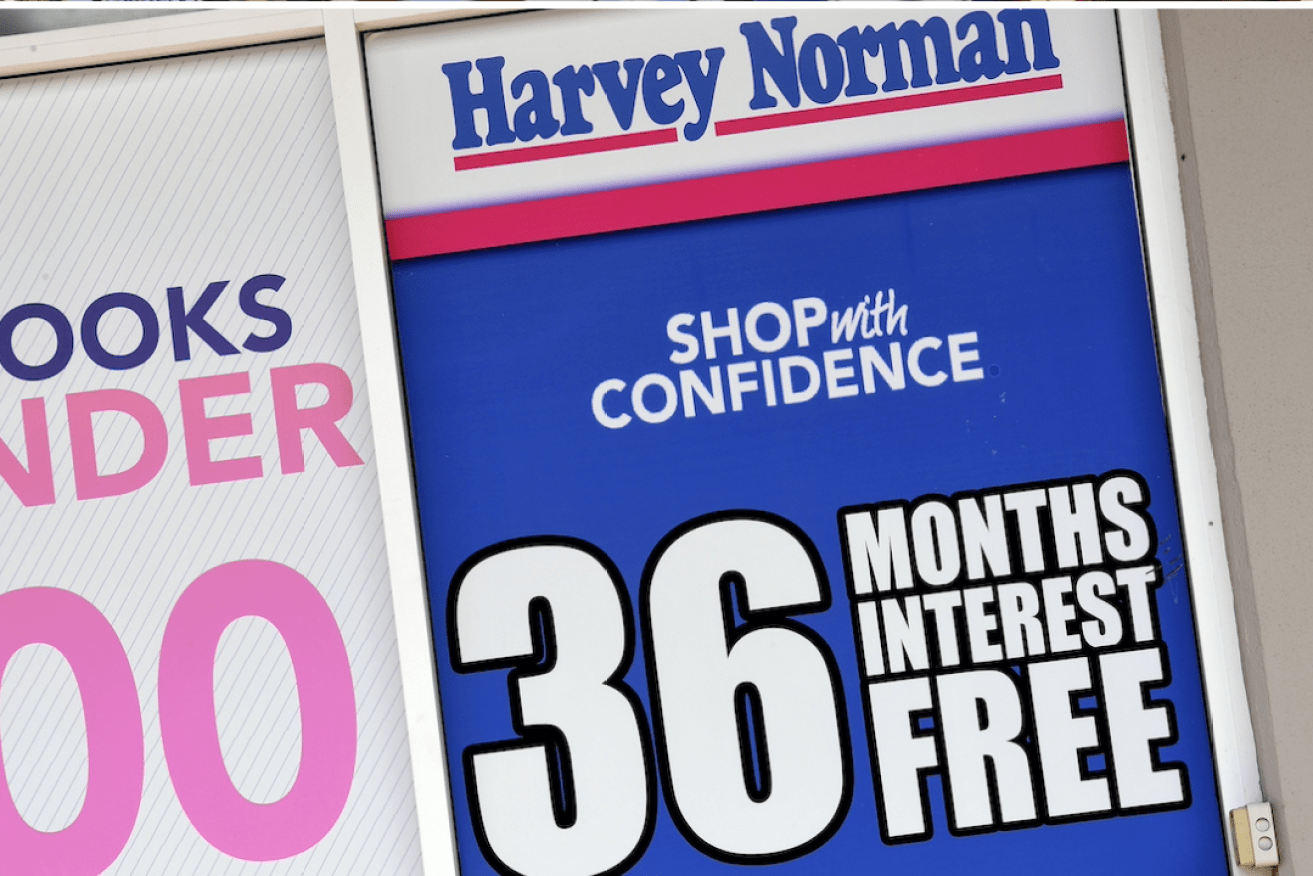The company, which also owns brands Domayne and Joyce Mayne, on Thursday posted a full-year underlying net profit of $471.9 million, down from $673.5 million the previous year.
Rising inflation and interest rates have hit retailers hard as consumers reduce discretionary spending to keep their heads above water.
Revenue from franchisees dropped 10 per cent after sales fell 4.9 per cent to $6.42 billion, slicing profit margins to 5.8 per cent.
Chairman Gerry Harvey also attributed the drop in sales to a normalisation in trading conditions after pent-up demand caused by COVID-19 lockdowns inflated figures the previous year.
But he says the company’s $4 billion property portfolio keeps it in good stead to ride out worsening macroeconomic conditions and cost of living pressures.
“We’ve always been unlucky because we’ve been in that bulky goods type market that’s been undervalued and not regarded as highly as office or warehouse,” Harvey said.
“Now it’s all turned around. So office is crook, warehousing’s great, the sort of retail we’re in is great.
“We’re the hot market now.”
Harvey blamed cooler than usual temperatures on Australia’s east coast for lower sales of seasonal products such as air conditioners, fans and barbecues.
He said profitability is still well above pre-pandemic levels, with before-tax profit up 35 per cent from 2019 to $776 million, and touted a 40 per cent growth in net assets.
Operating expenses rose 8.1 per cent after being abnormally low the previous year, when the company was forced to shut its stores due to COVID restrictions.
The overseas business, which is operated by Harvey Norman as opposed to franchisees, experienced a 40.1 per cent drop in profit.
The group’s property segment, which makes up just under a quarter of total underlying profit, recorded a 25.9 per cent profit dip.
E&P Capital retail analyst Phillip Kimber said the result, while “broadly in line with expectations, was very weak”.
“The Australian franchisee was better than expected, but the offshore businesses were generally worse than expected,” he said in a note.
“Sales momentum remains weak.”
The board declined to provide earnings guidance for the current financial year, but revealed Australian retail trading for July was down 12.6 per cent on the previous corresponding period.
Harvey said there’s about a 50-50 chance Australia follows New Zealand into a minor recession in the next two years, but there will be severe pressure on most businesses regardless.
“As far as the current situation goes, the city stores are under more pressure than the country stores,” he said.
“Overseas we expect to do better than last year. I can’t tell you what will happen in Australia.
“Overall, we’ve got full employment but we’ve got huge increases in rent, electricity, wages, all those things. So cost of doing business is going to be a major problem for any business.”
Malaysia remains Harvey’s prime expansion target. He intends to grow his empire in the Southeast Asian country from 30 to 80 stores by the end of 2028.
Harvey Norman was the last of Australia’s major retailers to report its full-year earnings.
JB Hi-Fi surprised the market earlier in August with a lower-than-expected drop in profits, with sales actually increasing at the electronics and white goods chain.
“They’re a very strong competitor to us in TV and audio and computer, but they’re not a strong competitor in anything else,” Harvey said.
“When you go through it category by category we’re in a very strong position.”
Harvey Norman declared a fully franked final dividend of 12 cents, down from 17.5 cents the previous year.
The company’s share price rose by 3.5 per cent to $3.98 about lunchtime.
-AAP
[solstice_jwplayer mediaid=”zFh4QHrx” playerid=”Meorb6nj” caption=”Sponsored video: The Post” /]





